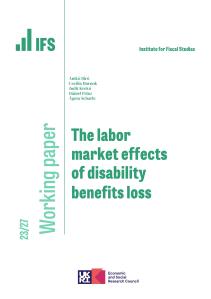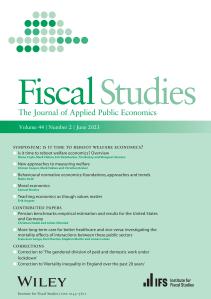Universal credit is suddenly grabbing all the headlines. John Major has warned that it could represent a poll tax moment for the government. Gordon Brown has spoken in apocalyptic tones about it plunging a million more children into poverty and causing a chaotic summer of discontent. There are reports of growing concern within the cabinet.
Yet not much has changed in the past year. No new cuts have been announced. Quite why the political and media classes have only just woken up to what is happening, I’m not sure. Whatever the reason for the present kerfuffle, the battery of recent pronouncements has created far more heat than light. A bright light, though, is needed. Universal credit is a very big deal, indeed.
Replacing six separate, means-tested benefits and tax credits, it eventually will pay out more than £60 billion a year. That’s more than we spend on all the armed forces and the police combined. About seven million families will receive it. That’s something like a third of all working-age households. Even more will receive it at some point in their lives. Reflecting the scale and complexity of the task, it has already been seven years in the preparation and it will be at least another five before it is fully rolled out.
So what is the fuss all about? At least three different issues are being conflated and confused.
The first, oddly, is about cuts that have little or nothing to do with universal credit itself, though they will be replicated in it. These are happening now. They are bigger than the eventual cut from the rollout of universal credit itself. And they are having, and will continue to have, a very big effect on the living standards of many families living on low incomes. The biggest of these is that the tax credit and benefit system will stop paying anything additional in respect of third and subsequent children. Bigger families will be entitled to a lot less support in the future.
This was among the package of welfare cuts unveiled by George Osborne in 2015. Make no mistake, that package represented a significant reduction in the generosity of our welfare system. It has already resulted in a lot of low-income families being considerably worse off, and lot more will follow. But this is not new. The cuts are not specific to universal credit. Importantly, they are also mostly being implemented in a way that provides cash protection for present claimants. Only new claimants and current claimants whose circumstance change will be affected. Perhaps that’s why these big cuts seem to have largely passed our political class by.
The second, and actually most arcane, issue is that Mr Osborne’s measures also mean that when universal credit is fully rolled out, it will be on average a little less generous than the system it is replacing (by about £1 billion in 2022-23) as opposed to a little more generous (by about £1 billion).
This seems to be what a lot of MPs are getting hot under the collar about. But the really important thing is that this small average cut will involve, literally, millions of people being made better off by universal credit (at a forecast gross cost of just under £10 billion) and millions being made worse off (with a forecast gross saving of just under £11 billion).
It was always part of the design of the system, even before the 2015 cuts, that most single parents, for example, would be left worse off. Many two-earner couples with children, many low-earning self-employed and those not in work but with savings will be made significantly worse off under the new system. On the other hand, a lot of one-earner couples with children and a lot of low earners in rented accommodation will be made a lot better off.
Creating these winners and losers was always part of the design. There will now be more and bigger losers, and fewer and smaller winners, than originally intended, but the pattern of many big winners and losers was baked in from the start. Finding an extra couple of billion pounds, as some are demanding, would not change those facts.
The same point pertains here as to the recent two-child limit in means-tested benefits. The idea is that nobody will lose in cash terms as they transition on to universal credit. They will be protected. Again, only new claimants, or people who have a change in circumstances, will lose relative to the existing system.
Whatever one thinks of the long-term effects, that doesn’t look like it will create a poll tax moment. What might create such a moment, though, is the third issue — the administration of the system. That is already creating some problems when new claimants move on to universal credit. There are all sorts of risks here, but perhaps the biggest are likely to arise as up to two million families presently receiving tax credits and benefits transfer across to the new system. Under current proposals, they will actively have to reapply. The transfer won’t happen automatically. If they don’t reapply, they will lose their benefits, including any transitional protection. The scope for large numbers of people to end up losing benefits in unintended ways is clearly huge. That is what should be keeping ministers awake at night.
It is hard to overstate just how big a change universal credit will be. It will create millions of winners and losers. Any poll tax moment, though, is most likely to occur for administrative reasons. The first priority for avoiding such a moment should be to ensure that existing claimants transfer as easily and seamlessly as possible.
This article was originally published in The Times and is reproduced here with full permission. Paul Johnson is director of the Institute for Fiscal Studies. Follow him on @PJTheEconomist.









